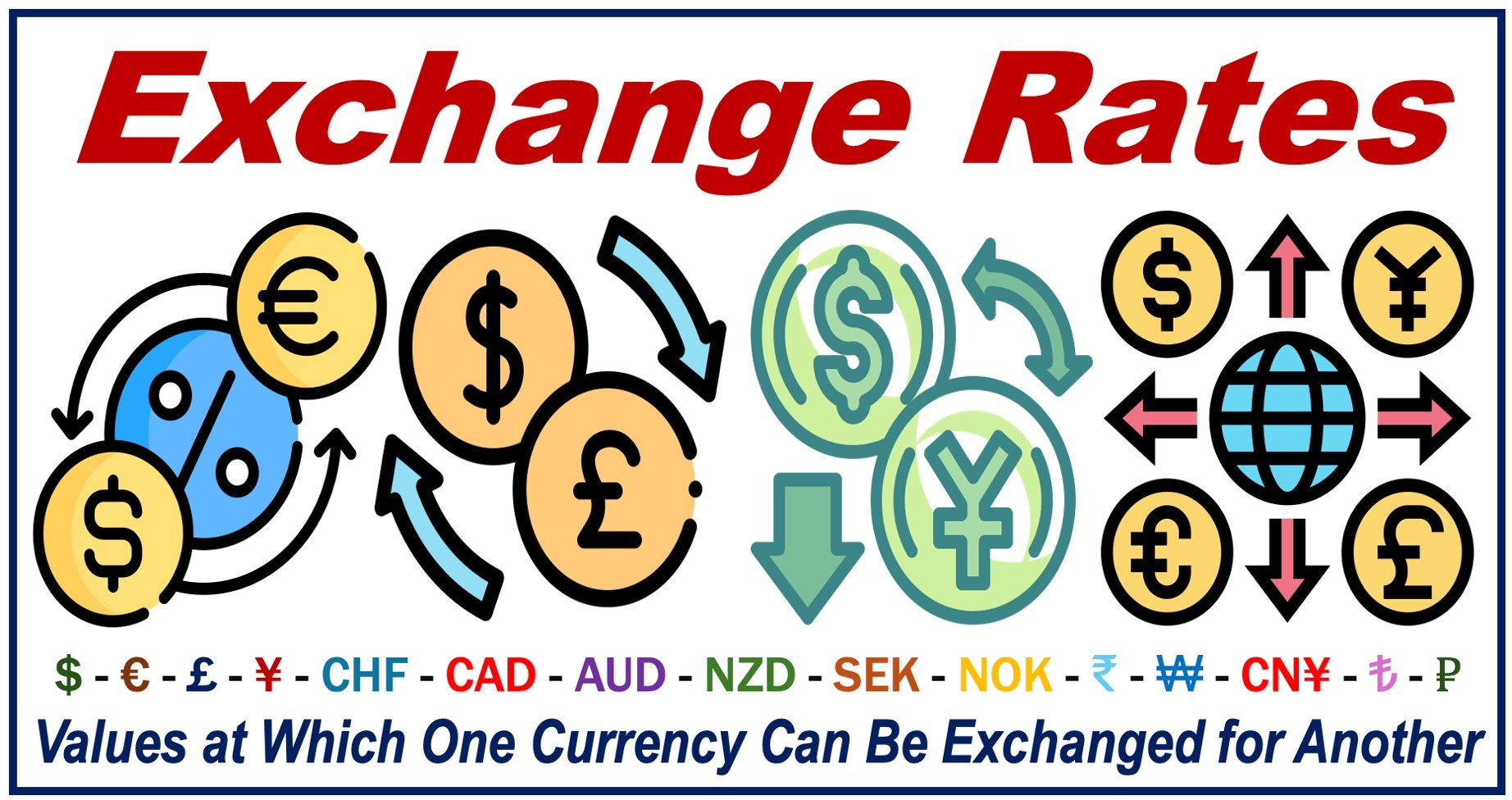An Exchange Rate, or Currency Conversion Rate, tells us how much one currency is worth in terms of another. For example, if I ask “What is the exchange rate for the pound sterling versus the US dollar,” you would answer “One pound equals $1.31.”
The exchange rate is a concept that enables us to understand the values of various currencies relative to one another. These fluctuate unless a currency has a fixed rate, so, if you are involved in imports, exports, or currency speculation, you will monitor conversion rates closely.
The Cambridge Dictionary has the following definition and example sentence of “exchange rate”:
“The rate at which the money of one country can be changed for the money of another country. Example: ‘The Central Bank intervened in the currency markets today to try to stabilize the exchange rate.'”
Exchange rates – not a new concept
The concept of exchange rates dates back to the Talmudic writing (200-500 AD) in Babylon, where currencies were exchanged for trade. The modern system, however, began in the 19th century with the gold standard, where currencies were pegged to gold.
The floating exchange rate system we see today did not begin until 1971.
Today, more than 180 recognized national currencies worldwide can be exchanged for other currencies through banks, currency exchange services, and online platforms.

Image created by Market Business News.
Currencies and market forces
Exchange rates are determined by market forces, that is, the supply and demand for currencies.
Supply and demand for currencies can be determined by various factors, such as:
- Economic stability
- Inflation rates
- Political conditions
- Trade balances
- Public debt levels
- Terms of trade
- Economic performance
- Speculation
- Central bank interventions
- Natural disasters or pandemics
- Technological advances and innovation
- Capital flows
If a country’s economy is strong and stable, its currency may be in high demand, which will probably lead to a higher conversion rate. Conversely, the currency of a country that is politically and economically unstable will be in low demand, which will most likely lead to a lower exchange rate.
Floating and fixed exchange rates
- Floating
A floating exchange rate means that the forces of supply and demand determine how much a currency is worth. This can vary, hence the term “floating.”
Most of the hard currencies operate under this system. A ‘hard currency’ is one that most people, businesses, and other entities accept, because it holds its value well. The US dollar, euro, pound sterling, Swiss franc, Canadian dollar, and Japanese yen are hard currencies.
- Fixed
A fixed exchange rate or fixed currency, on the other hand, does not change. Its value is pegged to another currency or a basket of currencies, usually by that country’s government.
How can currency values affect you?
Currency conversion rates matter not only for governments and companies that import and export but also for individuals. For example, if you are traveling abroad, you might need to exchange your money for the local currency. The day’s exchange rate determines how much foreign currency you get.
If you’re visiting a country where credit and debit cards are widely accepted, there’s less need to carry much foreign currency. Most card transactions offer competitive exchange rates, so using your card is unlikely to result in significant losses; in fact, it could be more cost-effective.
Exchange rates and sending money broad
Exchange rates are vital for sending money to people, businesses, and other entities abroad. If the value of the currency where you live goes up, the person in the other country will receive more local currency.
For immigrants who are sending remittances back to their home countries, exchange rates matter a great deal.
Final thoughts
For anybody dealing with more than one currency, understanding exchange rates is essential.
The value of a currency reflects the economic health of that country. It can also determine how much some goods and services cost, especially if they come from abroad.
Video – What’s an Exchange Rate?
This video, from our sister channel in YouTube – Marketing Business Network – explains what an ‘Exchange Rate’ is using easy-to-understand language and examples:
